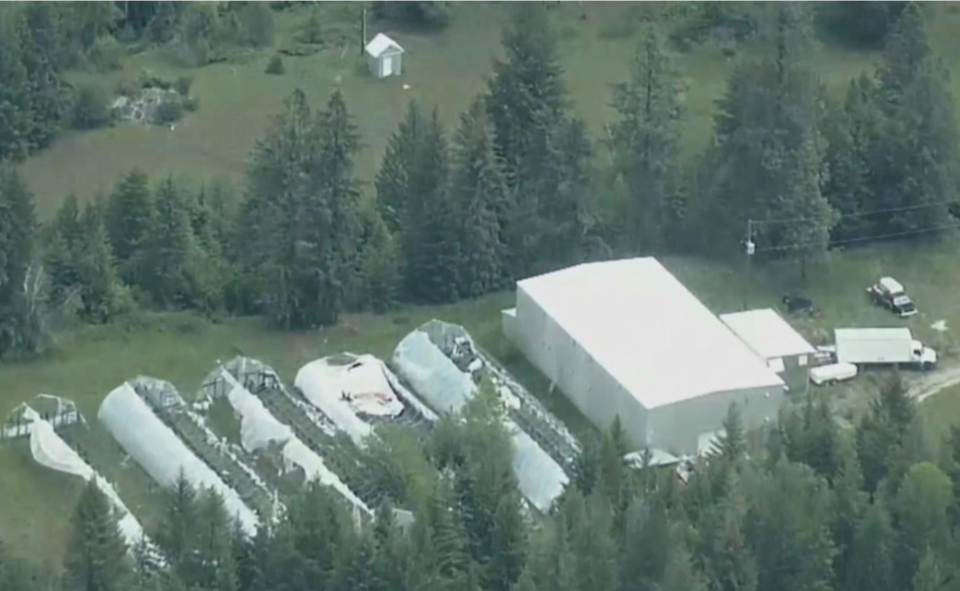The B.C. director of civil forfeiture is wasting little time in going after the Shuswap-area property where police claimed to have uncovered Canada’s largest drug superlab operating last fall.
On Jan. 31 the director filed a forfeiture claim against the property located at 5011 Hoath Road in unincorporated Falkland, B.C., as well as various pieces of industrial equipment believed to be used for illicit drug production.
The director, an independent arm of the B.C. government, names two defendants to the claim, including property owner Michael Driehuyzen as well as Gaganpreet Randhawa, the latter of whom remains the only person facing criminal charges in relation to the superlab bust.
The claim states that between January 2024 and October 2024 the property was used in the production, storage and processing of controlled substances for the purpose of unlawful trafficking.
The BC RCMP Federal Serious and Organized Crime unit executed a search warrant of the property on Oct.25, 2024, finding 52 kilograms of fentanyl, 30 kilograms of MDMA, equipment and several tonnes of precursor chemicals, the claim states.
Police estimated the drugs — enough to create 95.5 million potentially lethal doses of fentanyl — are worth $485 million.
The director seeks the forfeiture of the following pieces of equipment: a mass spectrometer, a gas chromatograph, an industrial grade power generator, a pump service trailer and a flat deck.
The claim notes the property was lined with “a sophisticated system of security cameras hidden throughout.”
It also notes in 2015 and 2016 police executed search warrants and found an “unlawful cannabis grow operation” at the property, while Driehuyzen was the owner.
“Driehuyzen knew or ought to have known the manner in which the property was being used and is likely to be used in the future. In the alternative, the defendant was willfully blind or reckless to the manner in which the property was used,” the director states.
The claim states Driehuyzen was last known to reside in Abbotsford, while Randhawa was last known to reside in Surrey.
The claim does not provide any details about Randhawa outside of naming him as a defendant.
The claim comes before any criminality is proven beyond a reasonable doubt in court.
This is because under the Civil Forfeiture Act the director must only establish that the property in question is either proceeds of or an instrument of unlawful activity on a balance of probabilities.
Assistant Commissioner David Teboul, commander of the RCMP Federal Policing program in the Pacific region, announced Oct. 31 Randhawa was charged with six counts of weapons and drug-related charges.
Randhawa is set to appear at a bail hearing Monday in Surrey Provincial Court, however, a publication ban is currently in place on the hearing process. He is presumed innocent unless proven otherwise in court.
Teboul said police believe the drugs are connected to Mexican cartels and were bound for international destinations, but not the United States.
“This was a supermarket for organized criminal entities,” said Teboul.
What remains unclear is why only one person has been charged in relation to the superlab.
As the case involves suspected transnational organized crime networks, there is concern, including from Teboul, that Canadian laws are hindering prosecution in such cases.



